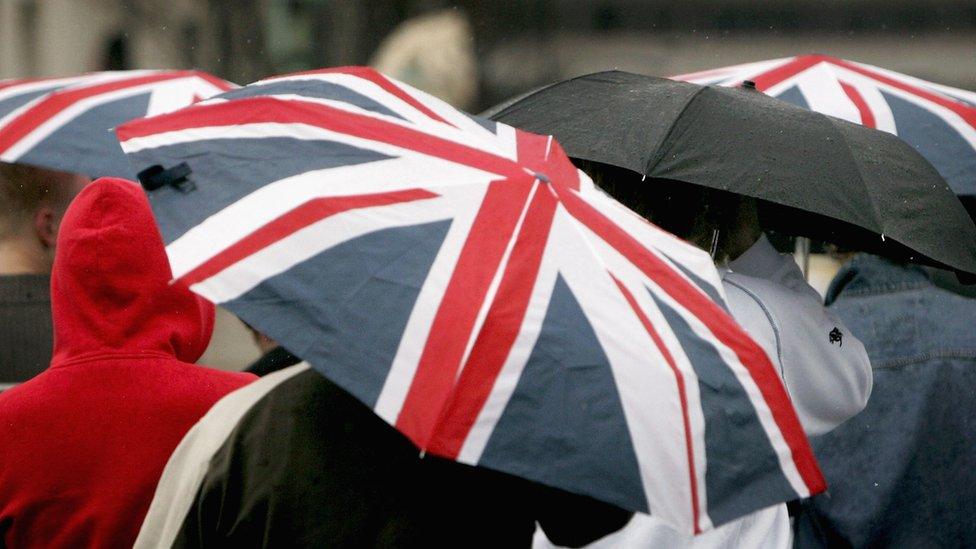What did we learn from the Bank of England?
- Published

A disorderly Brexit - with no deal and no transition period - could, in a worst-case scenario, deliver a severe economic shock to the economy, triggering a worse recession than we saw after the financial crisis, with the economy shrinking by 8%.
House prices could fall by 30%, commercial property by 48%.
Unemployment nearly doubles, the value of the pound could fall by a quarter, which would push up the price of imported goods, and see inflation rise by 6.5%.
That could prevent the Bank from lowering interest rates to help the economy - in fact interest rates might rise to 4% to tackle inflation.
Holy cow - so far so bad.
But wait.
The bank also said today in its Financial Stability Report, external that a close economic partnership after Brexit between the UK and the EU with zero friction at the border could see the UK economy boosted by up to 1.75% compared to current estimates as uncertainty lifted and confidence returned.
That doesn't appear to be on the table if you read the recent deal signed by the EU 27.
A more realistic assumption perhaps is a trade deal based on the one Canada has with the EU which involves some non-tariff barriers at or behind the border.
Not entirely frictionless - but Canada plus.
On this basis, the bank thinks the UK economy will be between 1.25% and 3.75% lower in five years time than it would otherwise have been.
The government's own assessment was that kind of scenario would leave the UK economy between 2.5 and 3.9% smaller by 2035 than if we'd stayed in the EU.
To argue the toss over half a percent here when comparing highly uncertain scenario analyses over long and different time scales like these is pretty pointless.
But the broad outlook from both the government and the Bank is similar.
Almost every plausible scenario makes the UK worse off than it would have been if it had stayed in the EU.
According to the Bank - the worst outcome is worse than the government thinks, and the best likely outcome is less bad.
Its important to remember these are scenarios - not forecasts of what will happen to the economy.
That gets affected by loads of other factors like trade wars, real wars, technology, natural disasters and so on, but in looking at the possible impact of a no-deal Brexit, the bank has in some ways come to the Prime Minister's aid.
The difference between her Brexit and no deal is very wide indeed. Her deal is not good, but its not that bad and no deal could be positively ugly.
Correction 26 March 2019: This article has been amended to make clear that in a worst-case scenario one of the consequences of a Brexit with no deal and no transition period could include the economy shrinking by 8%, according to the Bank of England.